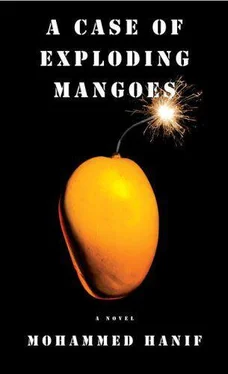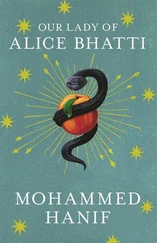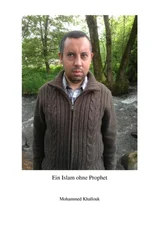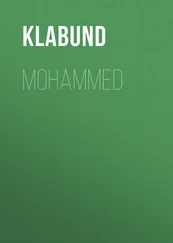“We are all doing our duty,” I whisper and lunge towards the table besides the barber’s chair, where I pick up a scythe and hold it to my neck. The metal is cold but it doesn’t seem that it can cut anything.
“Don’t move. If you move you’ll find lots of marks on my body.”
He unfolds his hands, still not sure what I want from him.
“Give me that file.”
He clutches the file with one hand and extends his arm towards me. “Sir, don’t be foolish.”
“For five minutes. Nobody will know.” The threat in my voice is overshadowed by the implicit reassurance.
He moves hesitantly towards me, clutching the file to his side. He probably has no experience of being blackmailed by naked prisoners.
“This is the least you can do after all my father did for you,” I urge him.
I have no idea what Dad might have done for him. But he did say he had attended the funeral.
“Five minutes.” He looks towards the door and scratches the half-moon scar on his cheek, which has suddenly turned red.
I nod energetically and extend my hand towards him, offering him the scythe as a sign of my peaceful intentions.
He takes the scythe with one hand and gives me the file. His hand trembles.
The preliminary report filed by Major Kiyani…
I flip over the cover page. The first report is my own statement. I turn the page and something falls out. I pick up a Polaroid picture from the floor. The picture is fuzzy; a mangled propeller, a smashed canopy, a wing ripped from the fuselage. It all adds up to a crashed MF17. The picture has a date at the bottom; it shows the day Obaid went AWOL. My eyes blur for a moment. I put the picture back in the file. Another form, another statement with Bannon’s signature. “Paper profile: Under Officer Shigri.” Words like bright officer, personal loss, secretive behaviour flash in front of my eyes before I hear footsteps approaching the room.
“Later,” says the soldier. He grabs the file from me and before I can anticipate his next move, lifts me up by my waist, shoves my head into the tyre and pulls a metal chain. I find myself hanging halfway between the floor and the ceiling.
Major Kiyani’s voice is hoarse and he is not pleased to see me swinging calmly in the air, my torso balanced on the tyre.
“I said no marks.” Major Kiyani walks below me in a circle. Dunhill smoke wafts into my nostrils and I inhale it eagerly. “I didn’t say, start a picnic here.”
Then he picks up the Philips iron and stands close to my head, his gelled hair and burly eyebrows level with my face. He brings the tip of the iron close to my left eyebrow. My eyes squeeze shut in panic. I smell burning hair and jerk my head backwards.
“Tarzan, people are asking about you. You better start talking before their goodwill runs out. It would take me less than a minute to iron the truth out of you but then you would never want to take your clothes off in front of anyone. I am sure even you can’t live with that.”
Then he turns towards another soldier who has followed him into the room.
“Put some clothes on him and take him to the VIP room.”
Clutching the rolled-up newspaper in both hands, the First Lady walked across the lawns of the Army House, ignoring the duty gardener who lifted his head from a rose bush and raised his soiled hand to his forehead to offer her salaam. As she approached the main gate of the Army House, the duty guards stepped out of their cabin, opened the gate and got ready to follow her. She waved the newspaper at the guards without looking up, signalling them to stay at their post. They saluted and returned to their cabin. The standard procedures for Security Code Red that the guards were following didn’t say anything about the First Lady’s movements.
She couldn’t remember the last time she had walked through the gate. She always went out in a mini-convoy of two outriders, her own black Mercedes-Benz followed by an open-top jeep full of armed commandos. The road under her feet looked like an abandoned runway, neat and endless. She had never noticed the ancient trees that lined the road on both sides. With their whitewashed trunks and branches laden with dozing sparrows, they seemed like the backdrop for a ghost story. She was surprised when nobody stopped her at the entrance to the Camp Office adjacent to the Army House, where her husband was busy playing the President.
“Get in the bloody queue,” a voice shouted at her, and she found herself standing at the end of a long queue of women, all middle-aged or old, all covered in white dupattas. She could tell from their faces that they were poor but had made the effort to dress up for the occasion. Their cotton shalwar qameez suits were neat and pressed; some had dusted their cheeks and necks with talcum powder. She noticed at least two shades of red nail polish. The First Lady could see her husband at the other end of the queue; teeth flashing, moustache doing its little dance for the television camera, the middle parting in his oiled hair glinting under the sun.
He was distributing white envelopes and as he handed over the envelopes he patted the women’s heads as if they were not poor women getting some much needed cash but schoolchildren at a morning assembly receiving consolation prizes from their headmaster. The First Lady thought of barging forward and confronting him in front of the television crew. She thought of unfurling the newspaper in front of the camera and giving a speech, telling the world that this Man of Faith, the Man of Truth, this Friend of the Widows was nothing but a tit-ogler.
It was only a passing whim, because she realised not only that her speech would never make it to the nation’s television screens, it would also start some ugly rumours in Islamabad which would circulate to the four corners of the country before the day ended: that the First Lady was a lunatic who felt jealous of the poor widows her husband was trying to help. She thought of opening the newspaper and showing the picture to the other women in the queue, but realised that they would think she was overreacting. “What is wrong with a president talking to white women?” they’d ask. “All presidents do that.”
She looked at the long line of women ahead of her, pulled her dupatta over her forehead tightly and decided to wait patiently in the queue, inching forward as the women in the queue moved towards their benefactor. Her hands kept rolling the newspaper into a tighter and tighter cone. The woman in front of the First Lady had been eyeing her suspiciously since she joined the queue. She looked at the First Lady’s diamond ring, her gold earrings, her mother-of-pearl necklace and hissed. “Did your husband leave you all this jewellery, or did you have to kill him to get it?”
With General Zia refusing to leave the Army House even for state functions because of Code Red, his Information Minister was running out of indoor ideas to keep his boss in the television news headlines. When General Zia ordered him to slot in some prime time for the President’s Rehabilitation Programme for Widows, the Information Minister was reluctant at first. “But we always do that during Ramadan, sir,” the Information Minister had muttered apologetically. He was not sure where to get hold of so many widows at this time of the year.
“Is there a law in this country which prohibits me from helping poor people in the month of June?” General Zia shouted back at him. “Has there been an economic survey that says our widows need help during Ramadan but not tomorrow morning?”
The Information Minister crossed his hands at his crotch and shook his head enthusiastically. “It’s a brilliant idea, sir. It would be a nice change for the news agenda. People are losing interest in all the talk about the Soviets going home and our Afghan mujahideen shooting at each other.”
Читать дальше












